I want to say thank you to everyone who filled out the survey. Roughly 1/3 of our congregation completed the survey. This has been helpful to me to pick an area of focus for a research project and sermon series that I’ll be preaching in March, 2024. We’ll be considering the person of the Son from John 1 and John 5 and how that helps us see the triune nature of our God.
I wanted to share the survey results publicly. I’ve added my own comments to each question. I’m not able to comment exhaustively in this post but I hope this will pique your interest and cause you to look more carefully at our God who has made himself known to us.
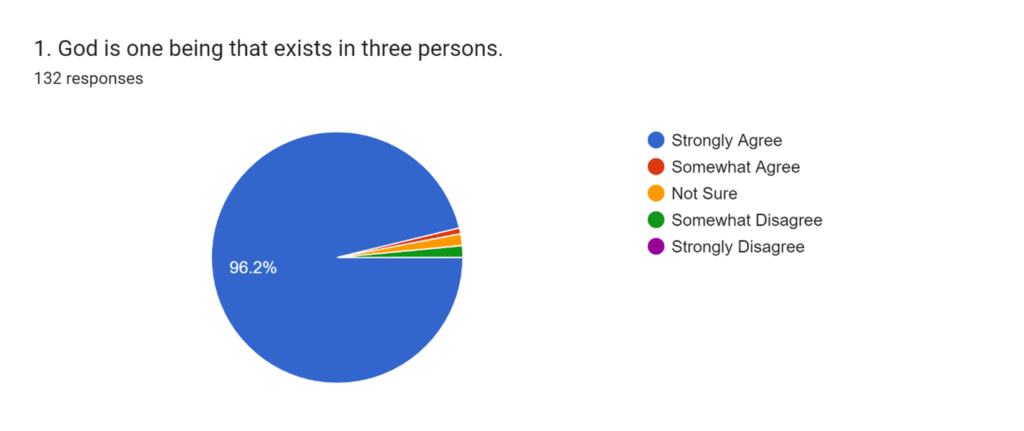
This question tells me that the orthodox understanding of the Trinity is nearly universally accepted. God indeed is one yet has revealed himself in three persons. John Gill, an ardent defender of the Trinity, says, “there is a Trinity of Persons in the Unity of the divine Essence.”
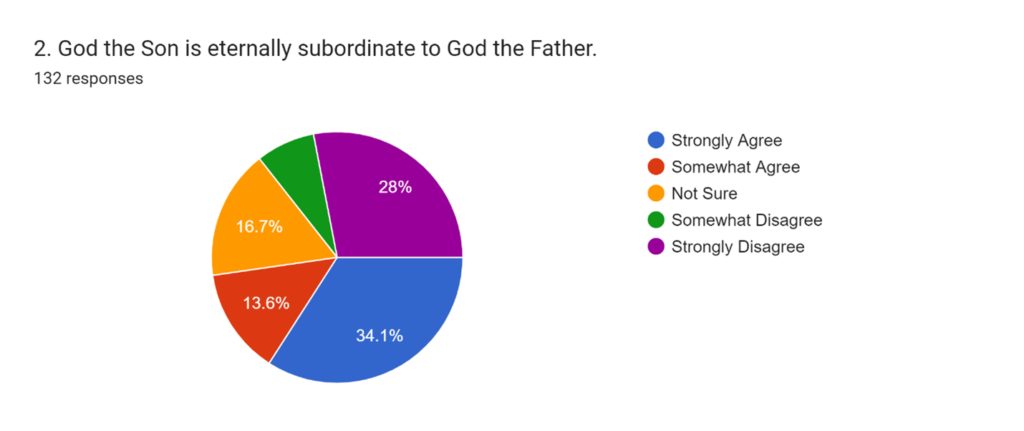
The keyword in this question is “eternally.” This has been hotly debated in recent years. A controversial teaching within evangelicalism known as the Eternal Subordination of the Son (ESS) or Eternal Functional Submission (EFS) argues that the Son is eternally subordinate to the Father. Clearly there is subordination of the Son in the incarnation, but whether this is an eternal subordination has been rejected and soundly refuted by most theologians. As a result, very few theologians defend ESS or EFS today but it is a common belief in the pew.
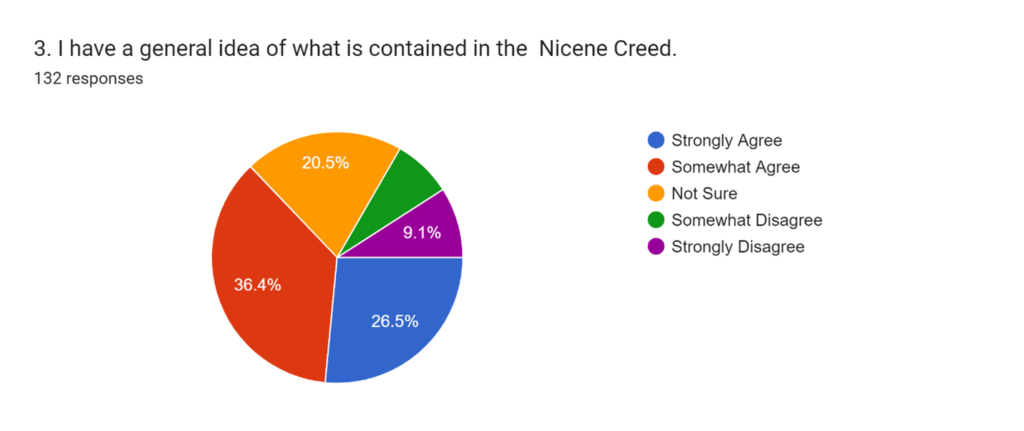
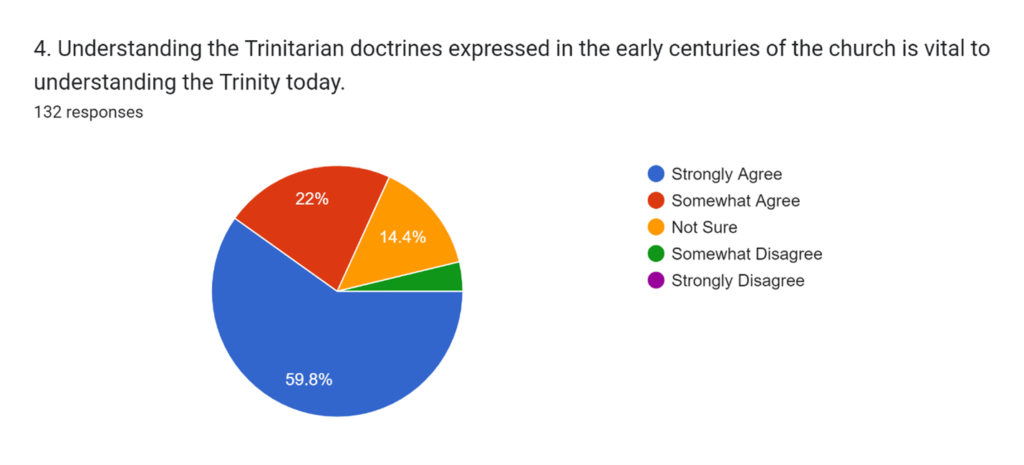
Questions 3 & 4 reveal that many believe that the ancient creeds are important but there are many who do not know what those ancient creeds contain. This can be a problem in modern times when we aren’t familiar with the conversations and battles that were fought in previous years to refine our understanding of Scripture. Our forefathers in the faith provide language, nuance, and dealt with errors that continue to crop up. It is best if we understand how the Spirit worked through them to lay a foundation upon which we stand.
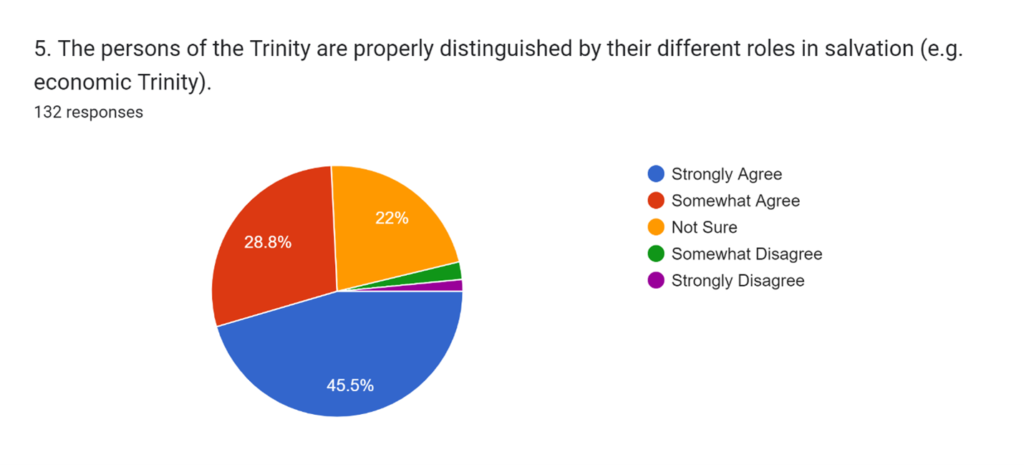
This question is a little tricky. It is true that God is seen in what he does, but he cannot be defined by what he does. That is, the economic Trinity (the roles of Father, Son, and Spirit in salvation) do not necessarily tells who God is from all eternity. Historically, theologians have made distinctions between who God is in himself, and what God does.
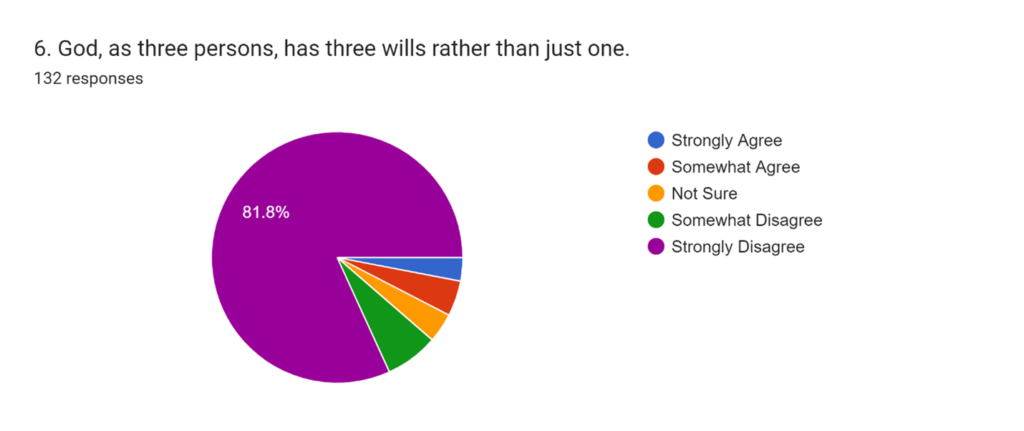
Most answered this correctly. God has one will. To affirm that God has three wills is to affirm tritheism and not the Trinitarian God of Scripture. It is important to the ESS or EFS controversy to maintain that God has one will. Subordination in the Trinity implies more than one will, yet God is one. (It is true that in the incarnation, the person of Christ, with his human will, submits his will to God. Yet, the triune God has one will.)
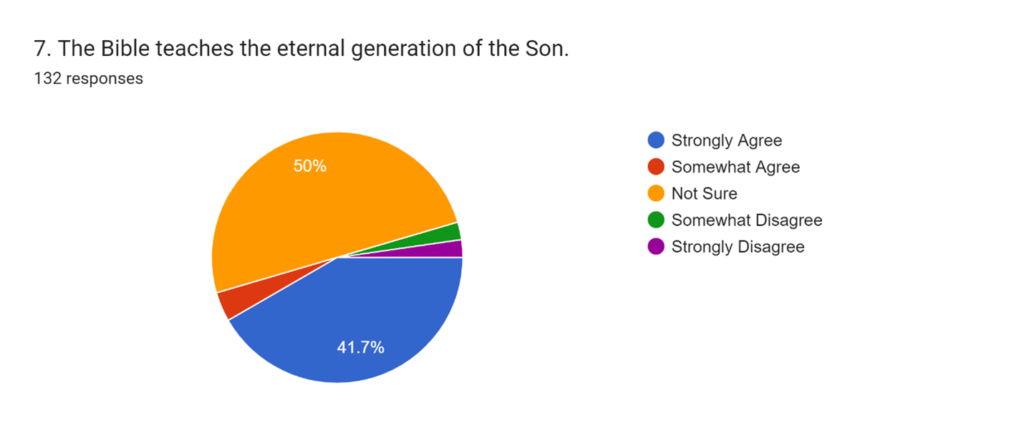
The eternal generation of the Son is indeed a biblical doctrine. This language was made famous by Augustine but is rarely taught today. The eternal generation of the Son describes how the Son is from the Father from all eternity. He is eternally begotten but not made. Where this is found biblically, and its consequence will come out later in my sermon series (for keeners, see John 5:26 in context).
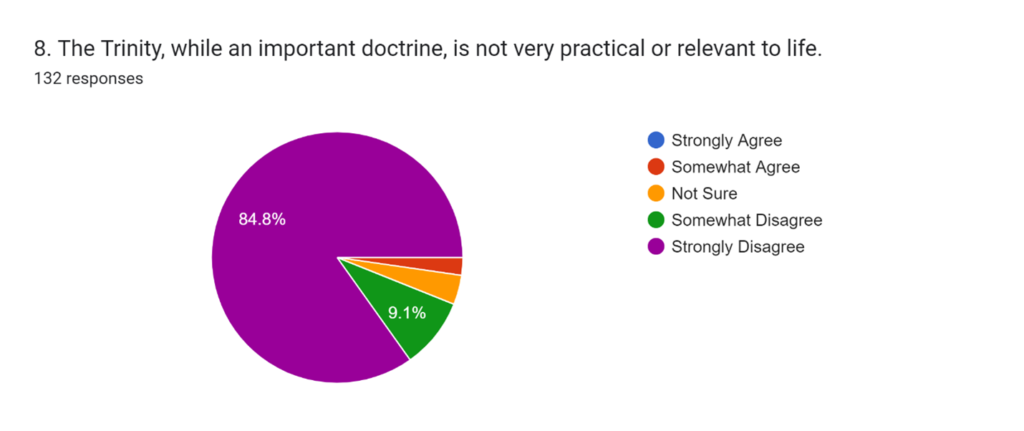
Glad to see that most people understand that the Trinity is relevant and practical. As a bonus you should ask yourself, “In what ways is knowing God as triune practical?”
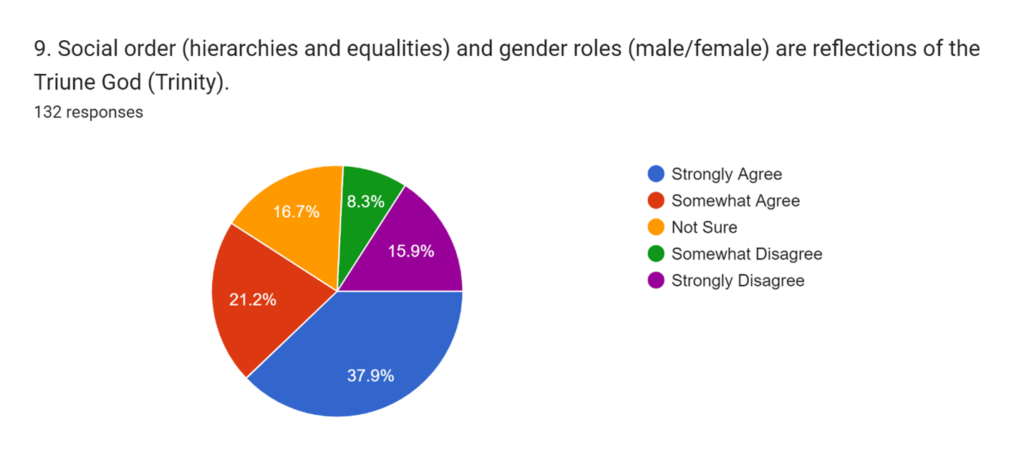
This is a question that touches on the recent ESS (EFS) controversy. Many mistakes have been made in conceiving God as a reflection of society or persons. While it is common to think that hierarchies reflect the Trinity they do not since God is not a hierarchy in himself.
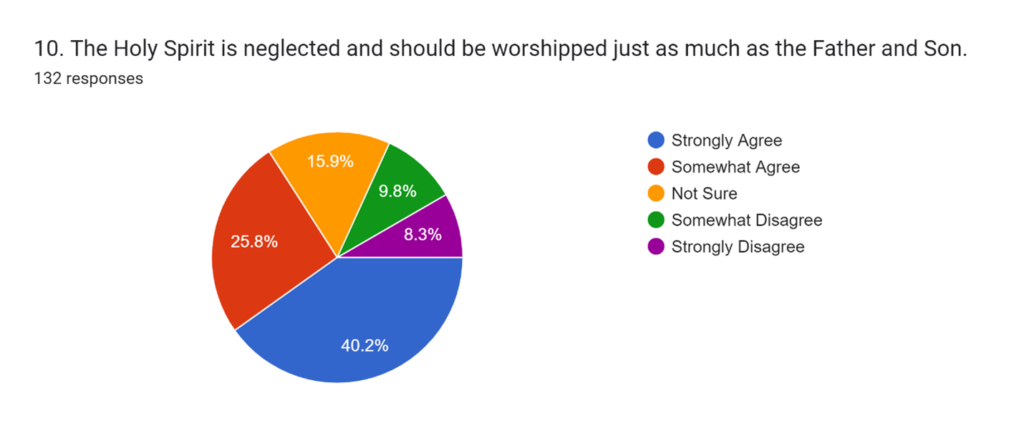
It seems to me that Pentecostal or charismatic theology has impacted the evangelical world at this point. They maintain that the Holy Spirit is neglected today. However, we do not see in Scripture the Holy Spirit being worshipped in the same measure and manner as the Father and Son. Rather it is the role of Christ to make much of the Father and it is the role of the Spirit to make much of Christ. Consider prayer. Prayer is made to the Father, in the name of the Son, and through the power of the Spirit. Prayer is Trinitarian by nature. It doesn’t become Trinitarian when we pray equally to all three persons. Our worship is Trinitarian when we worship the Father because of Jesus through the Spirit who mediates the presence of God. For more on this, Jesus’ teaching on the Holy Spirit in John 14–16 is helpful.
In March, I’ll be preaching a three-part series on the Trinity looking at John 1 and John 5. May the Lord use his word to build his church and increase our knowledge and love of him.
Tim Stephens
